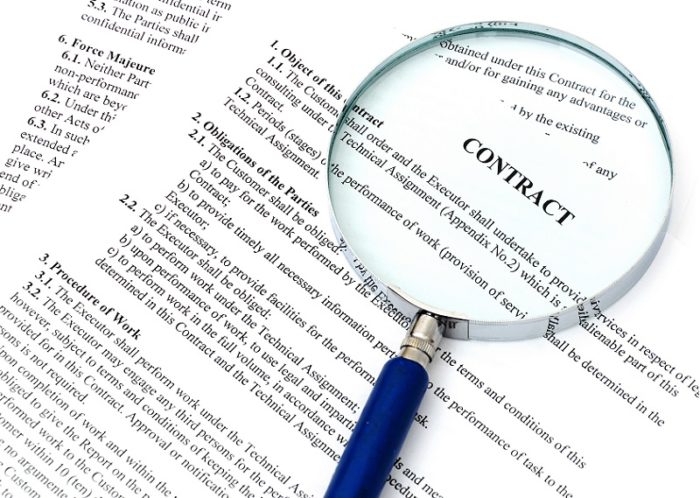In the dynamic realm of real estate development in India, the concept of force majeure emerges as a pivotal legal principle, profoundly influencing contractual agreements and project timelines. This comprehensive exploration delves into the intricacies of force majeure within the Indian legal framework, its implications for contractual arrangements, challenges faced by homebuyers, and strategies for effectively navigating force majeure in real estate contracts.
Defining Force Majeure:
Force majeure, originating from the French term meaning "greater force," refers to unforeseeable circumstances that lie beyond the control of parties involved in a contractual agreement. These events, which are often considered acts of nature or external forces, include but are not limited to natural disasters, war, government actions, and pandemics. In the context of contractual obligations, force majeure clauses serve as a legal mechanism to excuse parties from fulfilling their contractual duties when such extraordinary events occur, rendering performance impossible or impracticable.
Understanding Force Majeure within the Indian Legal System:
While the concept of force majeure is not explicitly defined in Indian law, its principles find recognition and application within various sections of the Indian Contract Act, 1872, and other relevant statutes. Section 32 of the Indian Contract Act deals with contingent contracts, providing insights into contractual obligations in the event of unforeseen circumstances. Additionally, the doctrine of frustration under Section 56 of the Act addresses situations where the fundamental purpose of a contract becomes impossible to fulfil due to supervising events. Despite the absence of a specific provision for force majeure, Indian courts have recognized and interpreted the concept within the framework of contract law.
Impact of Force Majeure on Real Estate Development:
In the context of the Indian real estate sector, force majeure clauses play a significant role in shaping contractual agreements between developers, buyers, and other stakeholders. With the enactment of the Real Estate (Regulation and Development) Act, 2016 (RERA), developers are required to register their projects and adhere to strict timelines for completion. However, force majeure events such as natural disasters, regulatory changes, or economic downturns can disrupt project timelines and lead to delays in delivery. The inclusion of force majeure clauses in real estate contracts provides developers with a degree of flexibility and protection against unforeseen events, allowing for extensions in project deadlines and mitigating potential liabilities.

Legal Framework in RERA:
Section 6 of the RERA Act specifically addresses the Force Majeure condition, outlining provisions for extending project registration in the event of unforeseen circumstances beyond the control of developers. This section serves as a safeguard, providing flexibility in adhering to project timelines amidst disruptions like natural disasters, government actions, or pandemics. Additionally, the Indian Contract Act of 1872 forms the foundation for interpreting Force Majeure clauses within contractual agreements, ensuring fairness and accountability in real estate transactions.
Implications and Extension Benefits for Developers:
The invocation of the Force Majeure clause amidst the COVID-19 pandemic has significant implications and extension benefits for developers. Firstly, developers benefit from an automatic extension of the registration period by six months, with the option for an additional three months at the discretion of the regulatory authority. This extension provides developers with much-needed flexibility in completing projects within stipulated timelines, mitigating the impact of unforeseen events on project delivery.
Furthermore, the waiver of fees during the extended period alleviates financial burdens on developers, allowing them to focus on project completion without additional financial strain. Additionally, the establishment of a time limit to comply with Force Majeure provisions ensures clarity and accountability in project management, fostering transparency and trust between developers and regulatory authorities. Moreover, treating the Force Majeure period as a moratorium for calculating interest on delayed completion and possession further supports developers by minimizing financial liabilities and penalties associated with project delays.
Implications for Homebuyers:
While the Force Majeure clause provides relief for developers, its implications for homebuyers warrant careful consideration. Project delays resulting from Force Majeure events may lead to frustration and financial uncertainty for homebuyers. Delays in possession handover can disrupt homebuyers' plans and financial arrangements, impacting their quality of life and investment decisions.
Furthermore, the extension of possession dates and deadlines for compliances under RERA may prolong the wait for homebuyers, affecting their trust and confidence in the real estate sector. Despite these challenges, transparency and protection for homebuyers remain paramount. Ensuring clear communication and timely updates from developers regarding project status and delivery timelines is essential to mitigate uncertainties and address homebuyers' concerns. Additionally, regulatory authorities play a crucial role in enforcing compliance with RERA provisions and protecting the interests of homebuyers, thereby fostering trust and accountability in the real estate market.

Last Updated Development of Force Majeure
The COVID-19 pandemic has brought unprecedented challenges to the real estate sector, prompting regulatory authorities to introduce measures to alleviate the impact on developers and homebuyers. In May 2020, the Ministry of Housing and Urban Affairs announced a nine-month extension of the registration period for real estate projects, along with a complete waiver of interest for late possession handover. This extension aimed to provide relief to developers amidst pandemic-induced disruptions and ensure equitable outcomes for homebuyers. Additionally, regulatory authorities advised states and union territories to invoke the Force Majeure clause, granting developers flexibility in adhering to project timelines and compliance requirements.
The impact of the pandemic on the real estate sector has been multifaceted. Construction activities faced disruptions due to labor shortages, supply chain disruptions, and restrictions on movement. These challenges led to delays in project timelines and heightened uncertainty among developers and homebuyers alike. The invocation of the Force Majeure clause provided a much-needed reprieve, allowing developers to navigate the challenges posed by the pandemic while ensuring compliance with regulatory requirements.
Homebuyers also faced challenges during the pandemic, including uncertainty regarding project completion timelines, financial constraints, and concerns about the safety of their investments. The extension of project registration and possession dates provided some relief to homebuyers, offering them additional time to plan and manage their finances. However, communication gaps between developers and homebuyers remained a concern, highlighting the need for enhanced transparency and accountability in the real estate sector.
Challenges and Mitigation Strategies:
Despite the protective measures afforded by the Force Majeure clause and regulatory interventions, challenges remain in navigating its application in real estate contracts. One significant challenge is the subjective interpretation of Force Majeure events, leading to disputes between parties regarding the validity of invoking such clauses. To mitigate these challenges, stakeholders must engage in thorough due diligence, assessing the potential risks and implications of Force Majeure events on project timelines and performance.
Furthermore, incorporating alternative dispute resolution mechanisms, such as mediation or arbitration, can facilitate timely resolution of disputes arising from Force Majeure claims, thereby minimizing disruptions to real estate transactions. By fostering collaboration and communication between developers, homebuyers, and regulatory authorities, stakeholders can proactively address challenges and ensure transparency and accountability in the real estate sector.
Conclusion:
Force Majeure clause within RERA represents a critical component of the regulatory framework governing India's real estate sector. By providing flexibility and relief to developers amidst unforeseen events, the clause ensures the resilience of the sector and protects the interests of all stakeholders involved. However, its implications for homebuyers underscore the importance of transparency, communication, and regulatory oversight to ensure equitable outcomes in real estate transactions.
Moving forward, stakeholders must continue to collaborate and innovate to address emerging challenges effectively. By leveraging technological advancements, adopting sustainable practices, and embracing alternative dispute resolution mechanisms, the real estate sector can navigate uncertainties and ensure transparency, accountability, and equitable outcomes for all parties involved.









.png)